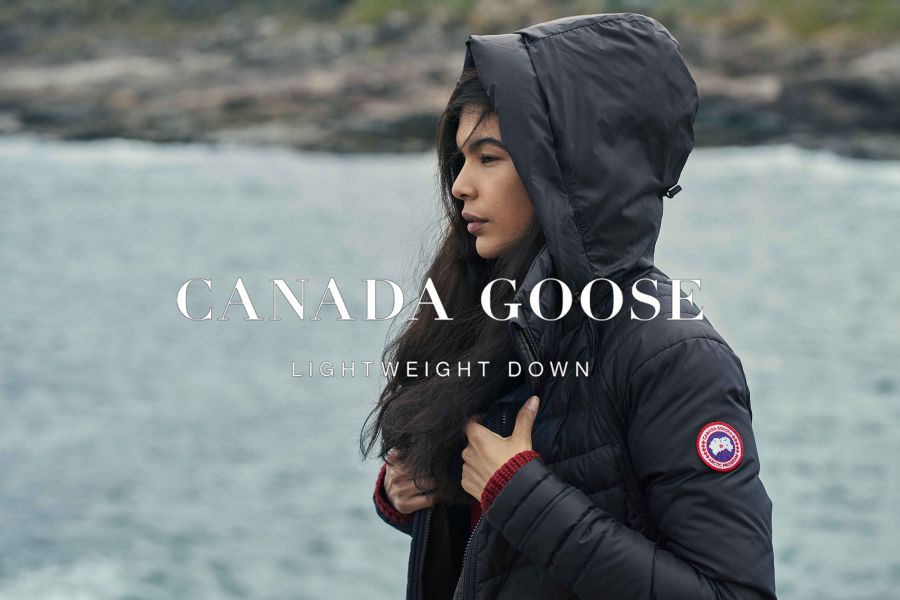Canada Goose is coming under fire for allegedly misleading consumers about the nature of the trapping methods used to source the fur for its buzzy jackets by claiming that it is dedicated to “the ethical, responsible, and sustainable sourcing and use of real fur.” According to the proposed class action complaint that he filed in a New York federal court November 20, plaintiff George Lee claims that when he purchased a fur-trimmed Chateau parka from Canada Goose in November 2017, he relied on Canada Goose’s representations that the fur on the jacket was sourced using ethical and humane trapping methods, only to learn that “Canada Goose’s suppliers use cruel methods that cause strangulation and broken bones to coyotes and other animals who are inadvertently trapped and discarded.”
Lee alleges that consumers “are willing to pay more for products labeled and marketed … [as being] ethically and sustainably sourced” than they are “for competing products that do not provide such assurances.” Canada Goose knows this, he claims, which is why it “cultivates an image of products [that are] a humane alternative for consumers who wish to avoid fur products that are sourced using inhumane, unsustainable, and unethical trapping practices.” In this vein, Canada Goose “makes specific representations about the ‘ethical’ sourcing of its fur,’” including on hangtag attached to its products, which tout the company’s “commitment to support the ethical, responsible, and sustainable sourcing and use of real fur” and its observance of various sourcing standards in the U.S. and Canada.
The problem, according to Lee’s complaint is that Canada Goose’s statements are misleading, as they suggest that the fur-sourcing practices used by Canada Goose trappers “prevent the infliction of extreme pain or distress on animals trapped for its fur products” when they do not. “While Canada Goose’s public representations lead reasonable consumers to believe that the company exclusively uses fur from humanely treated and slaughtered animals,” Lee argues that the company “allows for the purchase of fur from inhumane sources, [and] allows for sourcing from trappers that operate in jurisdictions that have no regulations regarding the methods of slaughtering trapped animals or the types of traps that may be used.”
Addressing Canada Goose’s assertions that all of its fur is sourced in line with the Agreement of International Humane Trapping Standards in Canada and the Best Managed Practices in the United States, Lee specifically claims that “even if Canada Goose did ensure compliance,” its ethical and sustainable sourcing statements are, nonetheless, misleading because “these standards themselves authorize inhumane trapping practices that reasonable consumers would perceive as neglectful and unduly harmful.”
As such, Lee contends that “Canada Goose capitalizes on consumers’ knowledge gap regarding fur industry practices by misrepresenting the treatment of the coyotes in its supply chain, including statements made on its product labels,” and in doing so, is running afoul of the DC Consumer Protection Procedures Act – which prohibits false advertising – and various state consumer protection statutes. Beyond that, he claims that Canada Goose’s statements amount to “a series of express and implied claims and/or omissions that [Canada Goose] knows is material to the reasonable consumer in making a purchasing decision, and that [it] intended for consumers to rely upon when choosing to purchase the products,” and thereby, breached when it failed to live up to them. And still yet, he claims that the brand has been unjustly enriched as a result.
In addition to certifying his proposed class action, Lee is seeking “declaratory relief in the form of an order declaring [Canada Goose’s] conduct to be unlawful, as well as injunctive relief putting an end to Defendant’s misleading and unfair business practices, including a change to the current products’ representations, packaging, labels and marketing of the fur products so that they are no longer represented as ‘ethical’ and ‘sustainable’ and subject to strict animal welfare regulations.” He is also seeking monetary damages in connection with his claims.
The case is George Lee, et. al., v. Canada Goose US, Inc., 1:20-cv-09809 (SDNY).














